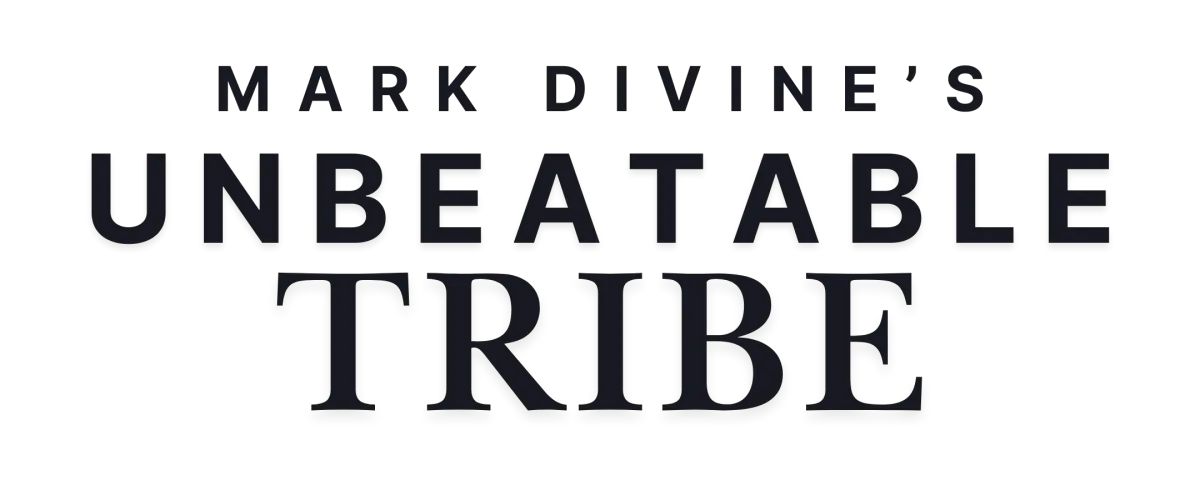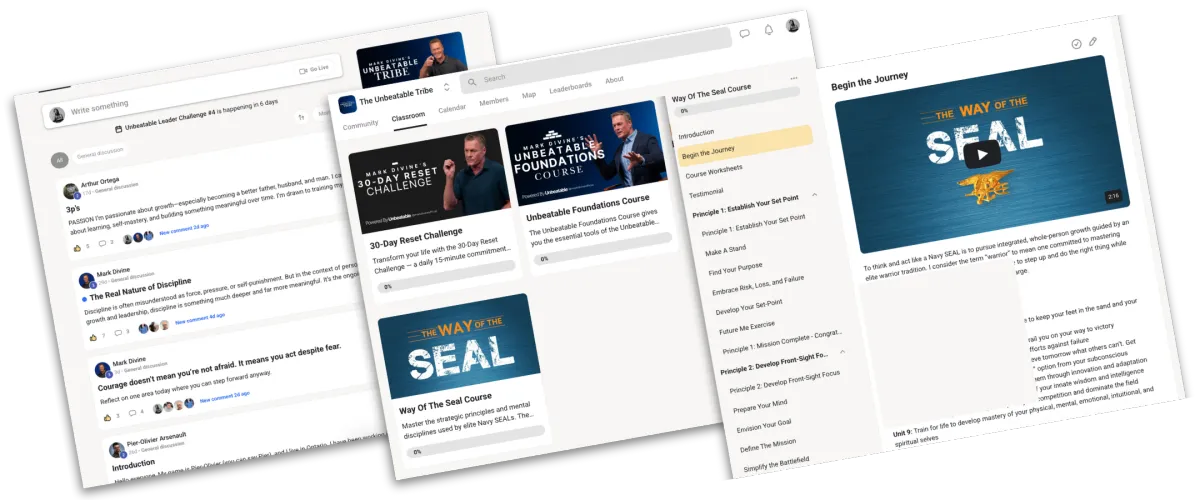Elite Mental Training
Train the Mind That Never Quits
Train Elite Focus. Build Emotional Control. Execute with Discipline. Become Unbeatable.



Leaders, executives, and entrepreneurs who want to operate at their highest potential and lead others with courage, trust, and respect.

Join the Tribe and become Unbeatable Today!

Leaders, executives, and entrepreneurs who want to operate at their highest potential and lead others with courage, trust, and respect.

#1 Bestseller on
amazon

Win in Your Mind
Your Path to Peace, Resilience, and Elite Performance
Commander Mark Divine presents Unbeatable Mind, a deeply personal guide designed to help you achieve victory internally through Box Breathing, visualization, and the 20X factor before facing life's greatest challenges.
Learn More →Also from Mark Divine
Copyright © 2025 Mark Divine | All Rights Reserved







